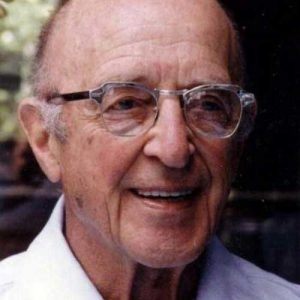OTHER ANIMALS ARE POSITIVE TOOAnthony Rose
I don’t recall discussing these experiences with Carl. When I left Kaiser Permanente and returned to CSP in 1984, I doubt he heard about my epiphanies with orangutans and gorillas. He didn’t know I was studying great ape ethology and writing about the positive nature of our common primate personhood. Rogers had begun to look at cultural and political conflict in his last decade; the welfare of humans captured his attention to the end. Had Carl know as I did that human biodominance would blanket the natural world, threaten to destroy the biosphere and doom the future of civilization, I think he would have join in the facilitation of all-inclusive positive personhood and the quest for global biosynergy.
As early as 1954 Carl Rogers had considered the idea that all organisms are subject to the conditions for growth that he and his colleagues had observed in humans.
Whether one calls it a growth tendency, a drive toward self- actualization, or a forward-moving directional tendency, it is the mainspring of life … It is the urge that is evident in all organic and human life—to expand, extend, become autonomous, develop, mature —the tendency to express and activate all the capacities of the organism, to the extent that such activation enhances the organism or the self.

Carl Rogers, Becoming a Person
Nellie Heldt Lecture, Oberlin College 1954
I don’t know when Carl began to place the names of other species on his postulation of “organism self-actualization”. Thanks to Will Stillwell, we see that he did so eventually. The third video presented by Will in his analysis of Carl’s therapy – How It Seems To Me – Carl Rogers Video 1985 – shows Carl describing how and why he holds the philosophy that the majority of organisms are positive, constructive, and trustworthy “persons” who wish no harm to others: who seek harmony and likely feel fundamental good-will towards all.
… many people believe that people are basically evil. In my experience that is not the case. … as you peel aside the layers … you find that at the core the person is trustworthy and constructive, not negative and evil.… as you get to know people more and more deeply, if you find persons are basically trustworthy … then you decide human nature is basically positive. A deer or a bear or a lion – or whatever – they’re positive. They may kill animals for food; do various things that seem harsh. But it’s not anything evil in their nature. It’s a constructive aspect of trying to preserve life.
Carl Rogers
There it is! In 1985 Carl Rogers proposed that not only “human nature is basically positive. … animal nature is positive, too.”
Carl’s generic positive hypothesis about “the organism” was a minority viewpoint among psychotherapists in 1954. What he later proposed for well-known wild mammals had become common in 1985. By the ‘80s wildlife protection and animal welfare were popular causes. I had begun promoting humane care and positive judgment of non-humans decades earlier. While we were founding CSP in 1968, I gave a talk about my monkey drug abuse research at the Western Psychological Association (WPA) meetings in San Diego. After a quick review of my scientific findings, I argued that such research was unethical. I had taken a positive view of “all organic life” as a comparative psychologist in the ‘60s, and while presenting my own profound experiences with monkeys to WPA in’68, I declared:
As I get to know my research animals more deeply, I find them all to be predictably good-willed … it is clear all animals are inherently positive.
When CSP was being founded in 1968, I already knew monkeys deeply enough to postulate their positive nature. My involvement with wild and captive great apes in the ‘80s and ‘90s confirmed their well-documented positive “humane” ways of being. Nobody who knew me was surprised to learn I was returning to Indonesia in 1994 to lead a round-table discussion on “Ethical Challenges to Primate Research & Conservation.” The International Primatological Society members who participated in that session were surprised by my opening salvo – a talk entitled “Paradigms for Personhood in the Age of atonement.” The other panelists already knew my thesis and were elated to have me proposing it. After two + hours of exciting give and take, the consensus favoring non-human primate personhood was strong. Despite the stolid opposition from a small band of reductionists, Speciesists, and selfishgene theorists, the majority of primatologists applauded my offer to carry the flag.
Now, after 27 ensuing years engaged in the study, service and salvation of all kinds of positive beings – apes and monkeys, elephants and rhinos, porpoises and whales, coyotes and wolves, wild dogs and hyenas, horses and buffalo, leopards and lions, tigers and cheetah, pangolin and porcupine, and many more – I bring the flag of Animal Personhood, stained by the blood and smoke of scores of battles, and plant it here at the Center for Studies of the Person.

Anthony Rose
Tony Rose has studied & synergized personal compassion within & among countless cultures & species as consultant, change agent, social scientist, conservationist, & biosynergist.
